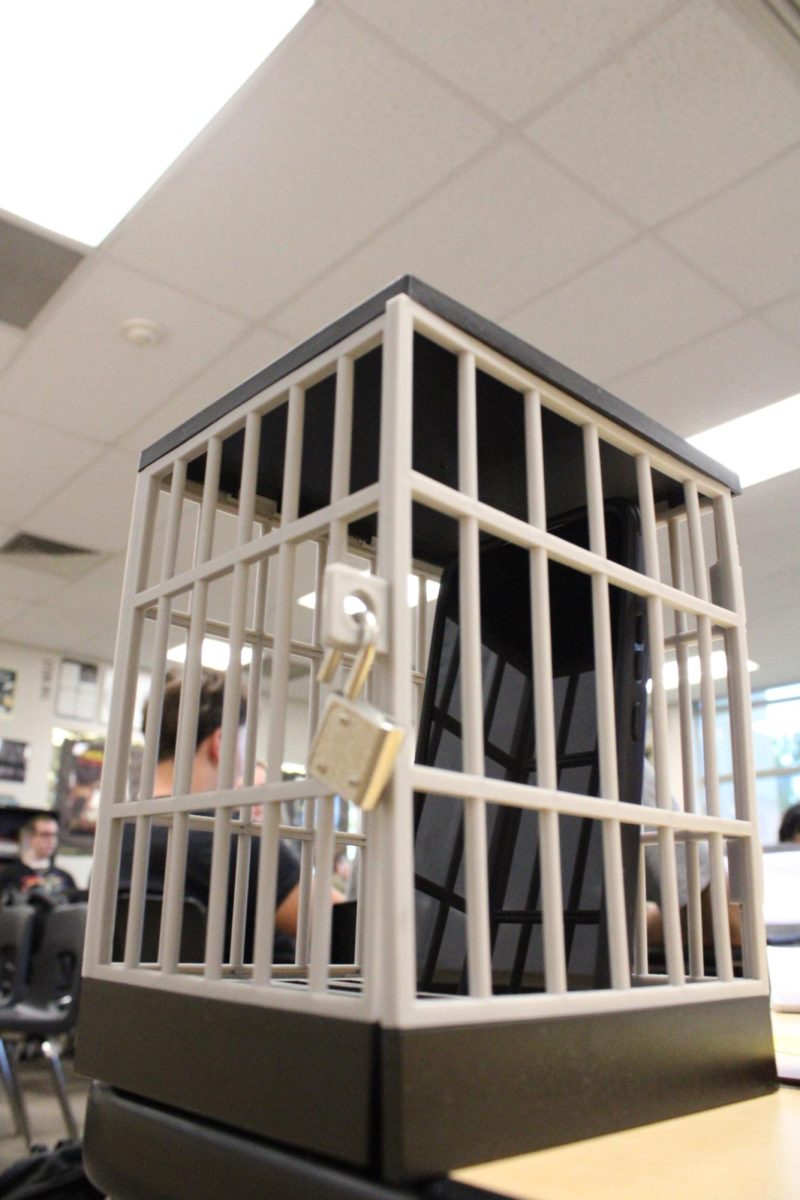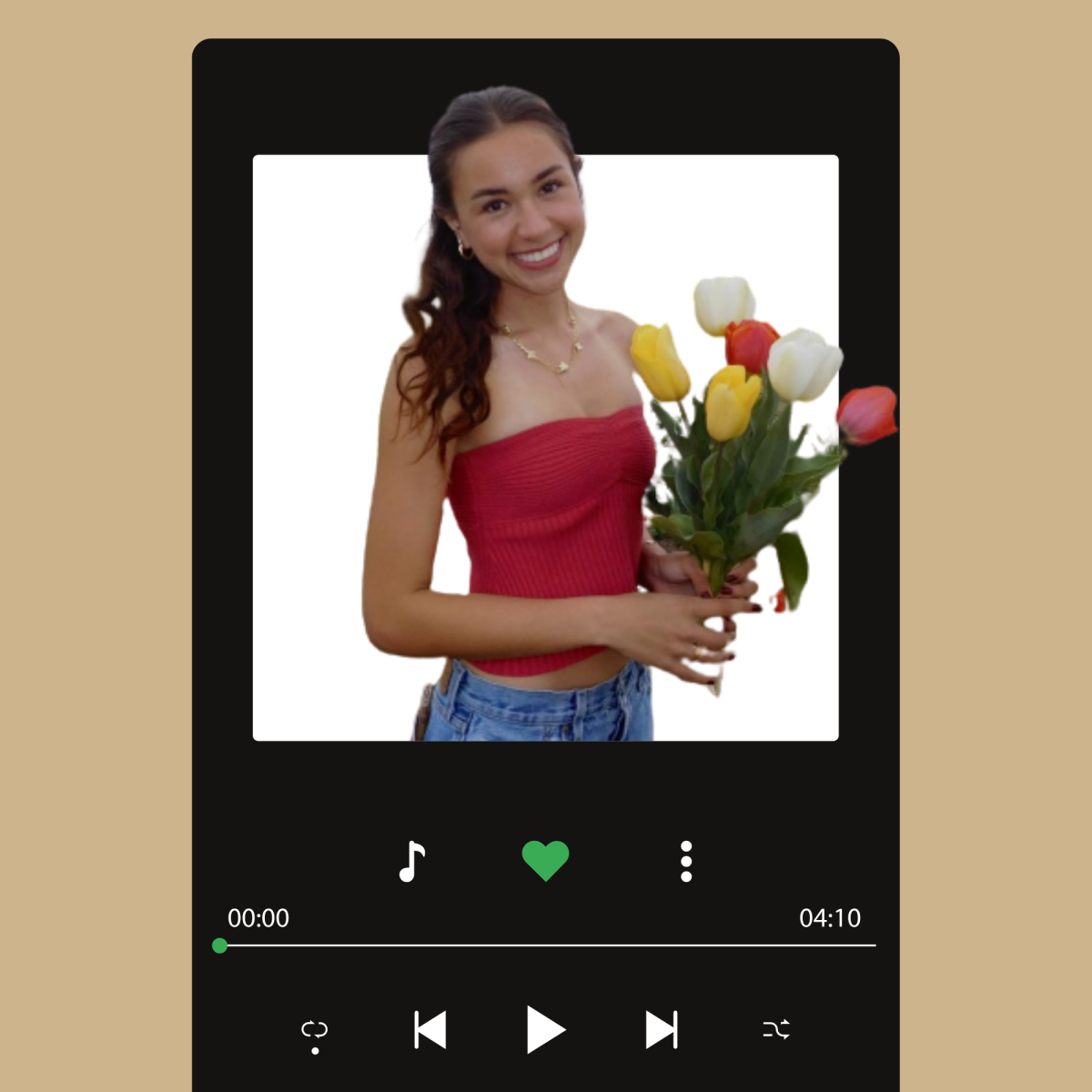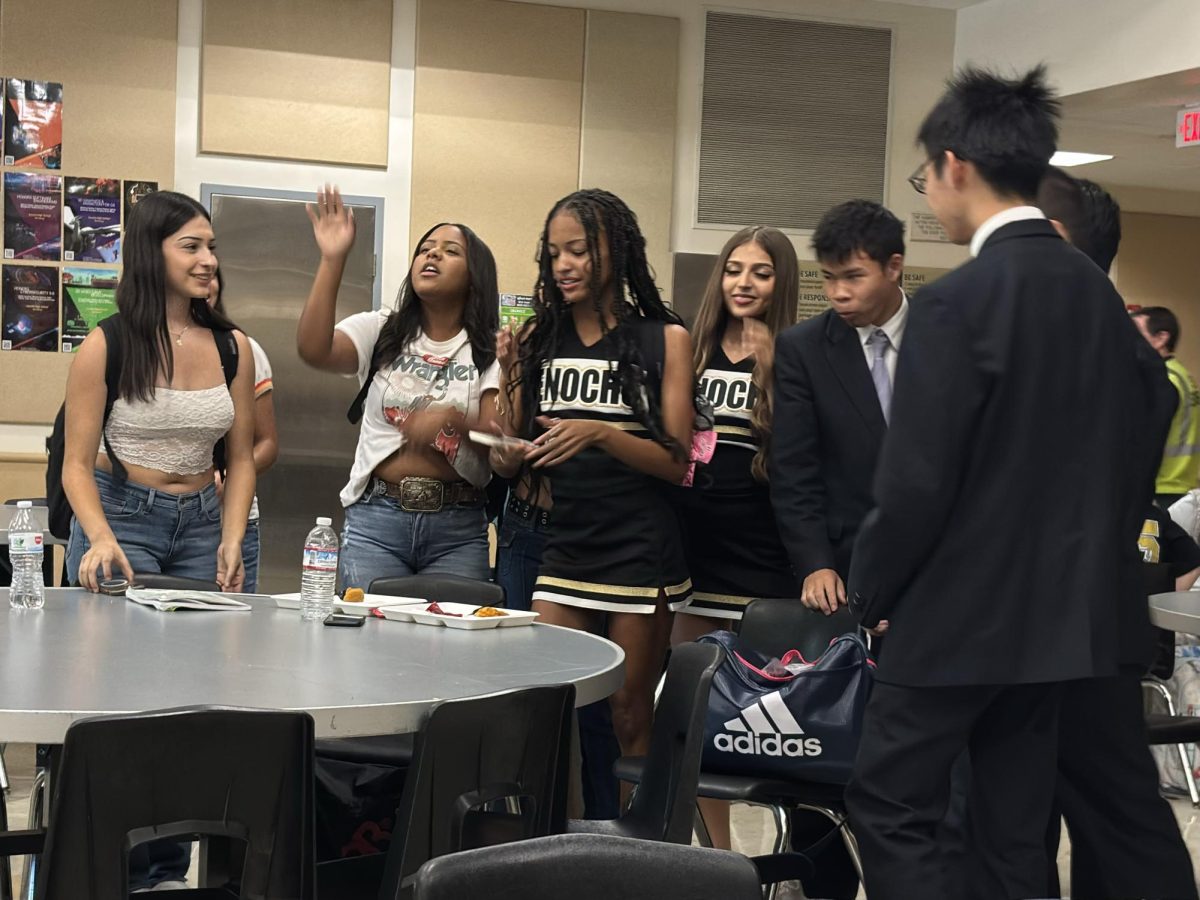There were 469 total notifications in an Enochs teacher’s first-period class.
Approximately half of those were student-to-student interactions through messaging apps like Instagram, Discord, and for the more old-school folks, Facebook. It can be concluded that for every notification, nearly two students are being distracted since there is more than one student interacting with each other at a time, typically from multiple different classes.
Teachers have been trying to control this distraction rate for a while now, but evidence of the COVID-19 pandemic and the reliance students had on their cell phones is evident everywhere you look.
With Five Star, students must use their phones as a hall pass to get out of class. This is creating more problems for students by forcing them to have to balance the policy with the need to have a phone when using the Five Star app.
Nevertheless, the use of cellular devices has become a necessity in today’s day and age. The question is, however, how will these phones be regulated? What constitutes a distraction or an essential procedure for class? Such is the challenge teachers must face in their classrooms. Discipline has now become yet another modern-day dilemma.
Jordyn Yin, a junior, personally doesn’t feel the need to look at her phone in class but acknowledges that they’re a problem.
“Because a lot of people just find it easy to just look at their phone in class,” she says.
Liliana Carrasco, also a junior, emphasized this point and shared her personal preference when it comes to using her phone in class.
“Like, only if it’s slow and boring, I’d rather go play My Singing Monsters or my other games that I play on my phone,” Carrasco says. “I don’t really feel like going on my phone in class, because no one texts me back anyways (sic),” she concluded with a smile.
Junior Alex Djukic shared that he gets distracted by his phone 4 to 5 times during class, and stated that they usually were texts. He thinks, however, that regulations don’t really need to be all that complicated.
“If they really wanted to regulate it, they could put something in the front of the class that says don’t go on your phone,“ Djukic says.
Celine Coronado, a junior, believes that phone regulations actually have an adverse effect on students.
“Classes where my teachers don’t care about phones, I tend to not use my phone at all. but then classes where teachers are really strict about phone policies, I feel the urge to just pull my phone out.”
This can be attributed to reverse psychology or just simple logic. If a teacher’s policies are lax enough that they don’t mind phones, then it is likely that their class entertains students more than their cellular devices.
Regardless, it is imperative at this moment that Enochs administration comes together to construct a comprehensive solution to this issue allegedly plaguing our campus.











